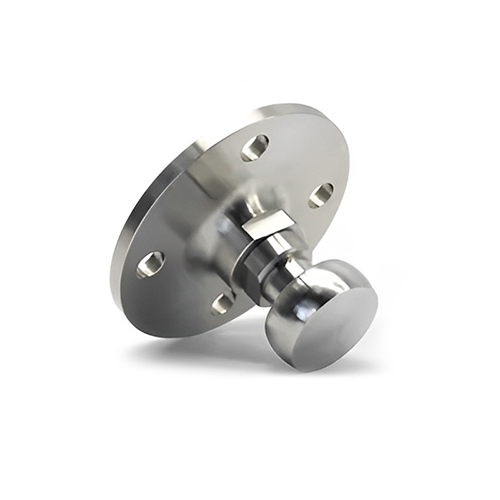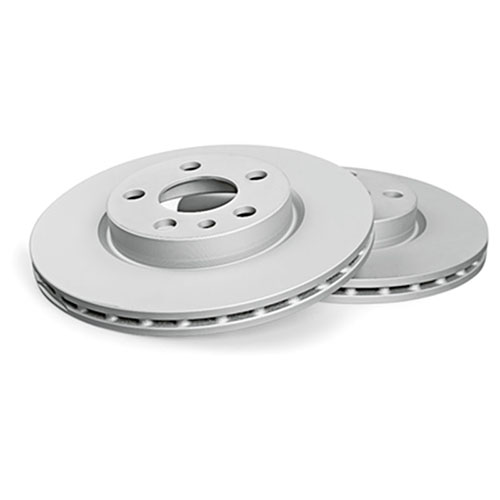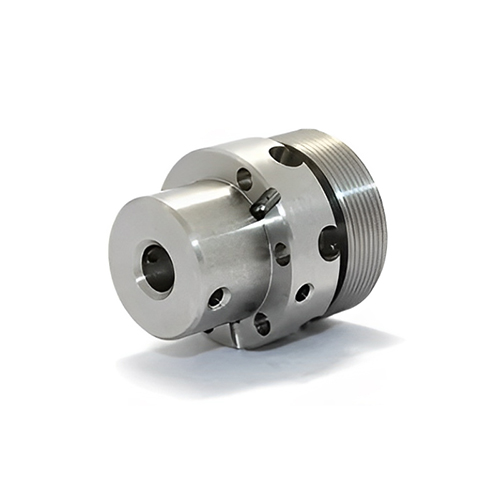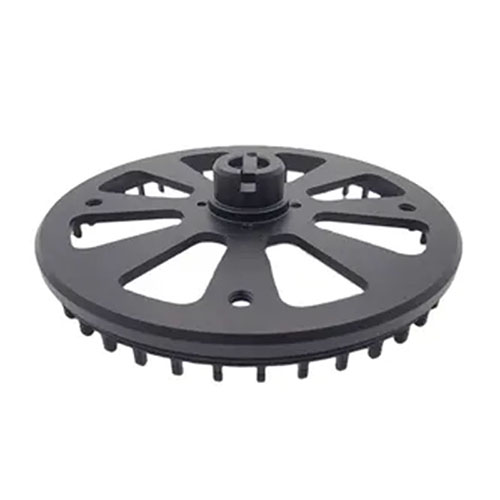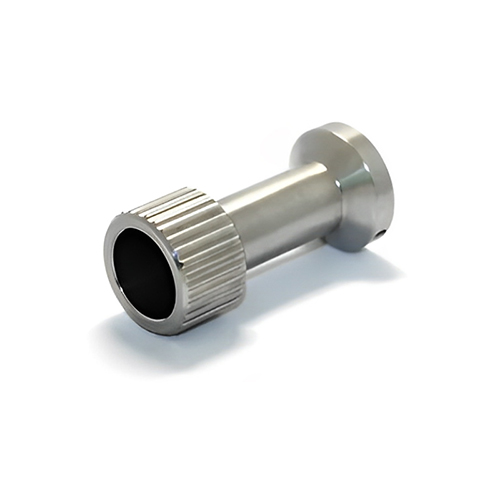Steel
Custom Steel Machining Service
Customize steel CNC machining services for customers at competitive prices, from prototyping to manufacturing, and get excellent surface finish, high precision, corrosion-resistant CNC machined steel parts in a short time.
- 10+ Years of Metal Machining
- 24H Instant Price & DFM
- Cost-effective and Quality Assured
- 100% Satisfaction Guarantee
- Competitive & Affordable Price
- High Quality and Consistency

Our Steel Machining Capabilities
Steel is an important iron-carbon alloy with carbon content ranging from 0.02% to 2.11%. It combines the high strength of iron with the hardness and wear resistance of carbon while having excellent ductility and forgeability. It is the most widely used material in CNC machining with high tensile strength, high yield point, good impact toughness, and excellent fatigue strength. CNC machining steel is widely used in aerospace, construction, machinery, chemical industry, power, and other industries. In addition, the recyclability of steel also reflects its environmental protection and sustainable characteristics.
| Price | $$$ |
| Lead Time | <10 days |
| Wall Thickness | 0.75 mm |
| Tolerances | ±0.005″ (±0.125mm) |
| Max Part Size | 200 cm x 80 cm x 100 cm |
| Available Steel at NOBLE | Carbon Steel: 1018, 1020, 1025, 1045, 1215, 4130, 4140, 4340, 5140, A36, ST37 |

Characteristics of Steel Machining Materials
Steel parts machining and manufacturing is one of our main type,below is some common information about Steel.
| Features | Info |
| Subtypes | Q195, Q215, Q235, Q255, Q275, 08 and 08F Steel, 10 an, 10F Steel, 20 Steel, 45 Steel, 40Cr Steel, 35CrMo Steel, 42CrMo Steel |
| Process | CNC machining, sheet metal fabrication,die casting |
| Tolerance | With drawing: as low as +/- 0.005 mm No drawing: ISO 2768 medium |
| Applications | Fixtures and mounting plates; draft shafts, axles, torsion bars |
| Finishing Options | Black Oxide, ENP, Electropolishing, Media Blasting, Nickel Plating, Powder Coating, Tumble Polishing, Zinc Plating |
Pros and Cons of Steel for CNC Machining
Aluminum is well suited for CNC machining due to its light weight, machinability, and versatility, making it suitable for a wide range of industries and favored by CNC machining manufacturers, however, it faces some challenges, such as lower strength compared to steel, susceptibility to wear, and potential issues related to thermal expansion and corrosion. Choosing the right aluminum machining method can mitigate these disadvantages for most applications.
Strength and Toughness
Steel exhibits high strength and toughness, enabling it to perform exceptionally well under cutting forces, impacts, and vibrations, without being susceptible to brittle fracture or edge collapse. This robustness is crucial in CNC machining, where large cutting forces and vibrations are frequently encountered.
Cost-Effectiveness
In comparison to some high-performance tool materials, steel boasts a relatively lower price point, rendering it a more cost-effective option in CNC machining. Furthermore, the durability and recyclability of steel contribute to further reductions in processing costs.
Excellent Machinability
Steel possesses exceptional machinability, allowing it to be readily cut or shaped during CNC machining to achieve the desired part structure. The precision capabilities of CNC machining further ensure that steel parts are produced to a high quality standard.
Corrosion and Wear Resistance
Steel parts typically demonstrate superior corrosion and wear resistance, which extends their lifespan and service duration. These properties make steel an ideal choice for applications requiring long-term exposure to wear and corrosion.
Versatile Applications
As a versatile material, steel holds immense potential for application in the field of CNC machining. It can be utilized to manufacture a diverse range of mechanical parts, tools, and equipment, catering to various industrial requirements.

Machining Cycle Time
Compared to lightweight materials (such as aluminum), steel possesses a greater density, necessitating longer periods to remove excess billet material during the machining process. This phenomenon can result in decreased machining efficiency, particularly in large-scale production environments where the impact is particularly pronounced.
Energy Consumption
CNC machining of steel typically requires greater energy consumption. This is primarily due to steel’s high hardness and density, necessitating larger cutting forces and power to complete the machining process. This has the potential to increase machining costs.
Corrosion Susceptibility
Steel can be highly susceptible to corrosion when exposed to certain environments, unless it undergoes specific treatment processes or is alloyed with other elements to enhance its resistance to corrosion.
Tool Wear
The hardness and toughness characteristics of steel can cause significant wear on cutting tools, especially during extended or continuous machining processes. This wear can lead to shortened tool life, necessitating more frequent tool replacements.

Types of Steel Machining Materials
Steel has a wide range of mechanical properties, and the choice of these steels depends on the specific requirements of the CNC machining process and the application’s need for strength, durability, and wear or corrosion resistance. Each steel type offers unique advantages for specific applications in industries ranging from manufacturing to automotive and aerospace. Here are some of the key properties of common steel alloys used in CNC machining.

Carbon Steel Q195
With low carbon content, it offers good plasticity, toughness, machinability, and weldability but moderate strength. Commonly used for rolling thin sheets and coils, as well as cold- and hot-rolled galvanized and tinplate composite sheets for roofing panels, decorative sheets, general-purpose dust removal piping, packaging containers, etc.
Yield Strength(MPa): 195MPa
Elongation at Break(%): ≥33% (for thicknesses ≤16mm) ≥32%(for thicknesses>16-40mm)
Hardness(Brinell): 130-240HB
Density(G/m³): ≈7.85 G/m³
Maximum Temp: -20~500℃ at usually (Varies with heat treatment)

Carbon Steel Q215
Slightly stronger than Q195, it shares similar applications and is also extensively used for welded steel pipes, galvanized welded pipes, furnace supports, anchor bolts, bolts, round nails, wood screws, stamped iron hinges, and other hardware components.
Yield Strength(MPa): 215MPa (decreasing with increasing thickness)
Elongation at Break(%): ≥31% (for thicknesses ≤40mm)
Hardness(Brinell): 230HB
Density(G/m³): ≈7.85 G/m³
Maximum Temp: -40~200℃ at usually

Carbon Steel Q235
Balances strength, plasticity, and weldability well. It is the most widely used grade. Applications include rolled steel shapes (such as round bars, square bars, flat bars, angle bars, I-beams, channel beams, window frame steel, etc.) and medium-thick steel plates for construction and engineering structures (like reinforcing steel bars, factory building frames, high-voltage transmission towers, bridges, vehicles, boilers, containers, ships, etc.). It is also widely used for mechanical parts with moderate performance requirements.
Yield Strength(MPa): 235MPa
Elongation at Break(%): 26%
Hardness(Brinell): 170-210HB
Density(G/m³): ≈7.85 G/m³
Maximum Temp: 0~350℃ at usually

Carbon Steel Q255
Similar properties to Q235 but with slightly higher strength and lower plasticity. Less commonly used than Q235, primarily for riveted and bolted structures.
Yield Strength(MPa): 255MPa
Elongation at Break(%): 24% (for thicknesses ≤16mm)
Hardness(Brinell): HB220~250
Density(G/m³): ≈7.85 G/m³
Maximum Temp: -20~50℃ at usually

Carbon Steel Q275
Higher strength and hardness with good wear resistance. Used for manufacturing shafts, agricultural implements, wear-resistant parts, rail joint splints, base plates, wheels, rolls, etc.
Yield Strength(MPa): 275MPa
Elongation at Break(%): 17~22%
Hardness(Brinell): 270~400HB
Density(G/m³): ≈7.85 G/m³
Maximum Temp: 200~300℃ at usually

Carbon Steel 08F
Used for rolling thin sheets, deep-drawn products, oil drums, high-quality enamelware, and also for pipes, gaskets, and parts requiring low core strength such as carbonized and cyanided parts, welding electrodes, etc.
Yield Strength(MPa): 175MPa
Elongation at Break(%): ≥35%
Hardness(Brinell): 131HB
Density(G/m³): ≈7.85 G/m³
Maximum Temp: ≥200℃ at usually

Carbon Steel 10F
Suitable for cold deep-drawing products under 4mm thick, such as deep-drawn containers and artillery shells. Also used for boiler tubes, oil drum covers, steel strips, steel wires, welded parts, and mechanical parts.
Yield Strength(MPa): 185MPa
Elongation at Break(%): ≥30%
Hardness(Brinell): 137HB
Density(G/m³): ≈7.85 G/m³
Maximum Temp: ≥470℃ at usually

Carbon 20 Steel
Good weldability and plasticity, suitable for cold pressing and cold rolling. Often used for manufacturing parts and components like bolts, nuts, bearings, and pins.
Yield Strength(MPa): 355MPa
Elongation at Break(%): ≥25%
Hardness(Brinell): 156HB
Density(G/m³): ≈7.85 G/m³
Maximum Temp: -20~425℃ at usually

Carbon 45 Steel
Excellent mechanical properties and heat treatment capabilities. Commonly used for manufacturing mechanical parts and components such as gears, racks, chains, and pins.
Yield Strength(MPa): 355MPa
Elongation at Break(%): ≥16%
Hardness(Brinell): 197HB
Density(G/m³): ≈7.85 G/m³
Maximum Temp: -20~400℃ at usually

Carbon 40Cr Steel
High strength and wear resistance. Often used for manufacturing high-strength, high-hardness mechanical parts such as machine tool shafts, wheel shafts, transmission gears, and racks.
Yield Strength(MPa): 785MPa
Elongation at Break(%): ≥9%
Hardness(Brinell): 207HB
Density(G/m³): ≈7.85 G/m³
Maximum Temp: ≤200℃ at usually

Carbon 35CrMo Steel
Good high-temperature resistance and high strength. Suitable for heavy-duty parts under high temperature and pressure, such as forging dies, automotive transmission shafts, and hydraulic cylinders.
Yield Strength(MPa): 835MPa
Elongation at Break(%):≥12 %
Hardness(Brinell): 229 (annealed or high-temperature tempered)
Density(G/m³): ≈7.85 G/m³
Maximum Temp: 500°C at usually

Carbon 42CrMo Steel
High strength and toughness. Used for manufacturing critical parts of large machinery, such as wind turbine bearings and aerospace engine components.
Yield Strength(MPa): 930~1100MPa at usually
Elongation at Break(%): ≥12%
Hardness(Brinell): 147~298HBW
Density(G/m³): ≈7.85 G/m³
Maximum Temp: 530°C at usually
Surface Finishing Options for Steel Machining
NOBLE has more than ten years of experience in surface treatments that can improve the performance and aesthetics of CNC-machined steel parts. Each surface treatment is tailored to meet the unique needs of your steel parts, ensuring they are suitable for any scenario.

Electroplating
Electroplating uses electrolytic principles to deposit a layer of metal or alloy coating on the metal surface. During electroplating, the workpiece serves as the cathode, and metal ions in the plating solution receive electrons at the cathode, reducing to metal atoms and depositing to form a coating. Electroplated coatings exhibit excellent electrical conductivity, corrosion resistance, hardness, and aesthetics.

As machined
The as-machined finish highlights precision machining marks, offering a natural, sleek look. Ideal for functional parts, it’s cost-effective, maintaining tight tolerances without extra machining.

Passivation
To increase surface hardness and dissipate heat, we use anodizing techniques to enhance the look of parts and blend well for painting and priming.

Powder Coating
Powder coating applies a heat-cured, durable finish, resistant to chipping, scratching, and fading. It offers aesthetic flexibility with various colors, perfect for outdoor equipment, automotive parts, and durable consumer products.

Shot Peening
Shot peening involves projecting abrasive particles at high speed onto the surface of a workpiece to remove surface contaminants, oxide layers, and old coatings, while increasing surface roughness to enhance adhesion for subsequent treatments (e.g. painting, electroplating).

Bluing / Blackening
Bluing and blackening rapidly oxidize the surface of steel products, forming a dense oxide film to enhance corrosion resistance. During bluing and blackening, steel products are heated in an oxidizing medium, causing surface oxidation reactions to produce a blue-black or black oxide film. This film offers good corrosion resistance, suitable for rust prevention of steel products.

Physical Vapor Deposition (PVD)
PVD deposits material atoms or molecules onto the substrate surface in a vacuum through physical methods (e.g. evaporation, sputtering). PVD coatings exhibit high hardness, low friction coefficients, and high temperature resistance. PVD technologies include vacuum evaporation coating, sputtering coating, and ion plating.

Pickling
Pickling employs acid solutions (such as sulfuric acid, hydrochloric acid, nitric acid, etc.) to remove oxide scales, rust, and oil from metal surfaces. During pickling, chemical reactions between the acid solution and metal surface contaminants generate soluble salts or gases, achieving surface cleanliness. Pickling is widely used in surface treatment of steel, non-ferrous metals, and other metallic materials.

Phosphating
Phosphating forms an insoluble phosphate coating on the metal surface to enhance corrosion resistance and coating adhesion. In the phosphating process, a chemical reaction between the metal surface and a phosphate solution produces a dense phosphate coating. This coating exhibits excellent corrosion resistance, adhesion, lubrication.

Chemical Plating
Chemical plating deposits a layer of metal or alloy coating on the metal surface without applying an external current, through chemical reduction reactions. Chemical plating offers uniform coatings with strong adhesion, simplicity in process, and is suitable for complex shapes and blind-hole parts.

Chemical Vapor Deposition (CVD)
CVD forms a solid coating on the substrate surface through gas-phase chemical reactions. CVD coatings possess exceptional chemical stability, high temperature resistance, and mechanical properties, suitable for manufacturing hard coatings, high-temperature, and corrosion-resistant components.

Ion Implantation
Ion implantation injects high-energy ion beams into the metal surface, altering the composition and structure of the surface layer through collisions and energy exchange between ions and substrate atoms, thereby improving its properties. Ion implantation offers advantages such as high processing temperatures, short processing times, and controllable implanted elements, suitable for modifying hardness, wear resistance, and corrosion resistance of metal surfaces.

Laser Surface Treatment
Laser surface treatment rapidly heats and cools localized areas of the metal surface using high-energy-density laser beams, achieving surface quenching, cladding, alloying, etc. Laser surface treatment offers advantages such as fast processing speeds, high precision, and small heat-affected zones, significantly enhancing the hardness, wear resistance, and fatigue strength of metal surfaces.
Custom Steel Machining Parts Display
Check out our over ten years of custom steel machining, including precision steel prototypes and parts from our valued customers.
Applications of Steel CNC Machining
Steel is one of the most widely used materials in CNC machining, with applications spanning a wide range of industries. Steel’s versatility, strength, and variety make it an ideal choice for producing precision parts for a variety of industries. Here’s a closer look at industry-specific applications for steel in CNC machining:

Automotive Industry
Steel is widely used in the automotive industry for its strength, durability, and cost-effectiveness. CNC machining can produce high-precision CNC machined steel parts that are critical to vehicle performance and safety. In the transmission components of automobiles, gears, shafts, and bearings made of steel are precisely machined to achieve a smooth and reliable transmission system.

Aerospace Industry
Steel is a key material in the aerospace industry because it can withstand extreme temperatures and high stresses. Aerospace components require materials that provide both strength and weight reduction. It is often used in aircraft, because fuselage components, landing gear components and fuselage structures are usually made of alloy steel and maraging steel because of their high strength-to-weight ratio and fatigue durability, while parts exposed to high temperatures, such as turbine blades and engine casings, are made of high-performance alloy steel and stainless steel.

Medical Industry
Steel is widely used in the medical industry for its biocompatibility, corrosion resistance, and ability to be CNC machined into precise, high-quality components. Widely used in surgical instruments, it is used to manufacture surgical tools such as scalpels, forceps, and scissors. The material must be highly resistant to corrosion and withstand the sterilization process. Stainless steel and titanium alloys are used to manufacture medical implants such as joint replacements, dental implants, and bone screws. CNC machining steel ensures precise shapes and tolerances for a proper fit.

Tool and Die Industry
Tool steel and high-speed steel are essential materials for making molds and cutting tools, as these materials require high hardness, wear resistance, and the ability to withstand extreme conditions. Mainly used in injection molds, tool steel is often used to make injection molds to produce high-precision plastic parts; and die-casting molds, steel is used to make molds for metal parts in the automotive and consumer goods industries; it can also be used as cutting tools, ensuring that high-speed steel and carbide tools are used in CNC machining operations to cut, drill and mill other materials with high precision.

Oil and Gas Industry
Steel is indispensable in the oil and gas industry due to its high strength, corrosion resistance, high pressure and high temperature resistance. It is widely used in wind turbine structural frames and components such as shafts, gears and bearings. Steel is also essential in the nuclear power industry for the manufacture of reactor pressure vessels, steam generators and piping systems because of their ability to withstand radiation and high temperatures. In addition, steel can be used to manufacture drill bits, pumps, valves and other drilling equipment for the extraction of oil, natural gas, etc. due to its high strength.

Machinery Equipment
Steel’s strength, durability, and flexibility make it a mainstay of the heavy machinery industry. CNC machining steel ensures that components are manufactured to precise dimensions for heavy-duty applications. Beams, columns, and frame members made from steel are fundamental to building construction. Steel’s strength allows it to be formed into large, stable structures, while CNC machining allows for precise cutting and assembly. Steel is used to manufacture large machinery such as cranes, bulldozers, and excavators, which require components such as gears, shafts, and hydraulic systems that can withstand heavy loads and harsh operating conditions.
If you are looking for a rapid prototyping manufacturer or a CNC machine shop to fabricate small, medium-volume, or mass-production products, NOBLE is an ideal choice. Our well-trained and experienced staff manufactures parts in line with drawings on modern CNC machines, with the highest accuracy and processing quality in all sizes.In addition, we provide professional design considerations for your CNC machining projects.
Want to get the most professional and fastest service for your CNC machining project? Upload your CAD files now and obtain a quote!


